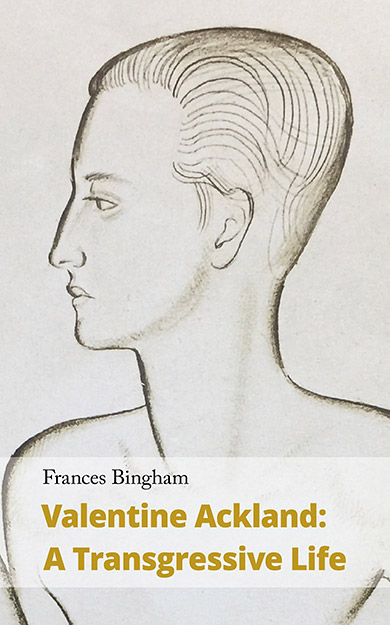 A host of marvellous new books about Sylvia Townsend Warner and her circle are currently being published.
A host of marvellous new books about Sylvia Townsend Warner and her circle are currently being published.
English Climate: Wartime Stories (21 May 2020)
Persephone Books have collected twenty-two of Warner’s stories dating from 1940 to 1946 and have republished them as English Climate. Some were reprinted in two volumes, A Garland of Straw in 1943 and The Museum of Cheats in 1947, and one or two have appeared in anthologies since. Lydia Fellgett, who runs Persephone, writes in her Preface: ‘These stories show a writer seeking to understand what life was like in Britain at war. She worked quickly, without the haze of nostalgia, and (unlike her novels, which moved between the centuries) they were always contemporary, reflecting the texture of what was happening at that moment in time. Almost all the stories are set in English market towns and villages, with a few recurring characters providing snapshots of communities of women throughout the war. Funny, brilliantly written, at times utterly heart-breaking, delightfully sharp, dry, intelligent and full of memorable characters: they are stories that strike the reader as somehow true as only the best fiction can.’
Women Writing for Women: Life-Writing, Genre and Criticism in the Texts of Sylvia Townsend Warner and Valentine Ackland (27 May 2020)
In her academic monograph, Ailsa Granne explores Warner’s relationship with Ackland by closely examining the women’s letters and diaries alongside a selection of other texts, in particular their poetry, to reveal the crucial role writing played in establishing, maintaining, and defending their intimacy. Warner and Ackland’s need to speak as women, writers and lovers shaped their texts, so that they became not simply records of events, nor acts of communication, but complex documents in which love is won and lost, myths are created, and lives are changed. Examining how Warner and Ackland exploited the distance between their lived life and their written accounts of it, Ailsa Granne explores the fluidity of the boundaries between letters, diaries and fiction and provides a fresh perspective on these life-writing forms.
Side-stepping Normativity in Selected Short Stories by Sylvia Townsend Warner (1 August 2020)
In another academic book, Rebecca K. Hahn attempts a comprehensive study of Warner’s short stories, showing how Warner’s innovative narrative style refused to conform to conventional modernist standards, and thereby contributed to the canon of queer modernist and post-modernist writers.
Bloomsbury Stud: The Life of Stephen ‘Tommy’ Tomlin (24 September 2020)
Michael Bloch and Susan Fox give a fascinating account of the life of Stephen ‘Tommy’ Tomlin, one of the most enigmatic figures of the Bloomsbury Group. Tomlin attended Harrow School, where Warner’s father, George Townsend Warner, was a housemaster and Master of history. At Harrow and afterwards in London, he formed a strong friendship with Warner, introducing her to the Dorset village of East Chaldon and the writer T.F. Powys, though the pair were to eventually stop speaking. Bloomsbury Stud looks at Tomlin’s career as a sculptor, and his relationships with Bloomsbury and other friends, stories of which are posted dynamically on Instagram at @bloomsburystud.
Valentine Ackland: A Transgressive Life (20 May 2021)
Published on what would have been her 115th birthday, Frances Bingham’s biography of Valentine Ackland reveals the remarkable cross-dressing woman, poet and activist with whom Warner shared her life. Alongside the story of the couple’s relationship and Ackland’s radical politics, the biography celebrates Ackland’s queer identity and recovers an important story from British lesbian history.
Frances Bingham was interviewed by the Guardian on Ackland’s communism, and tells why the poet was blacklisted by MI5.